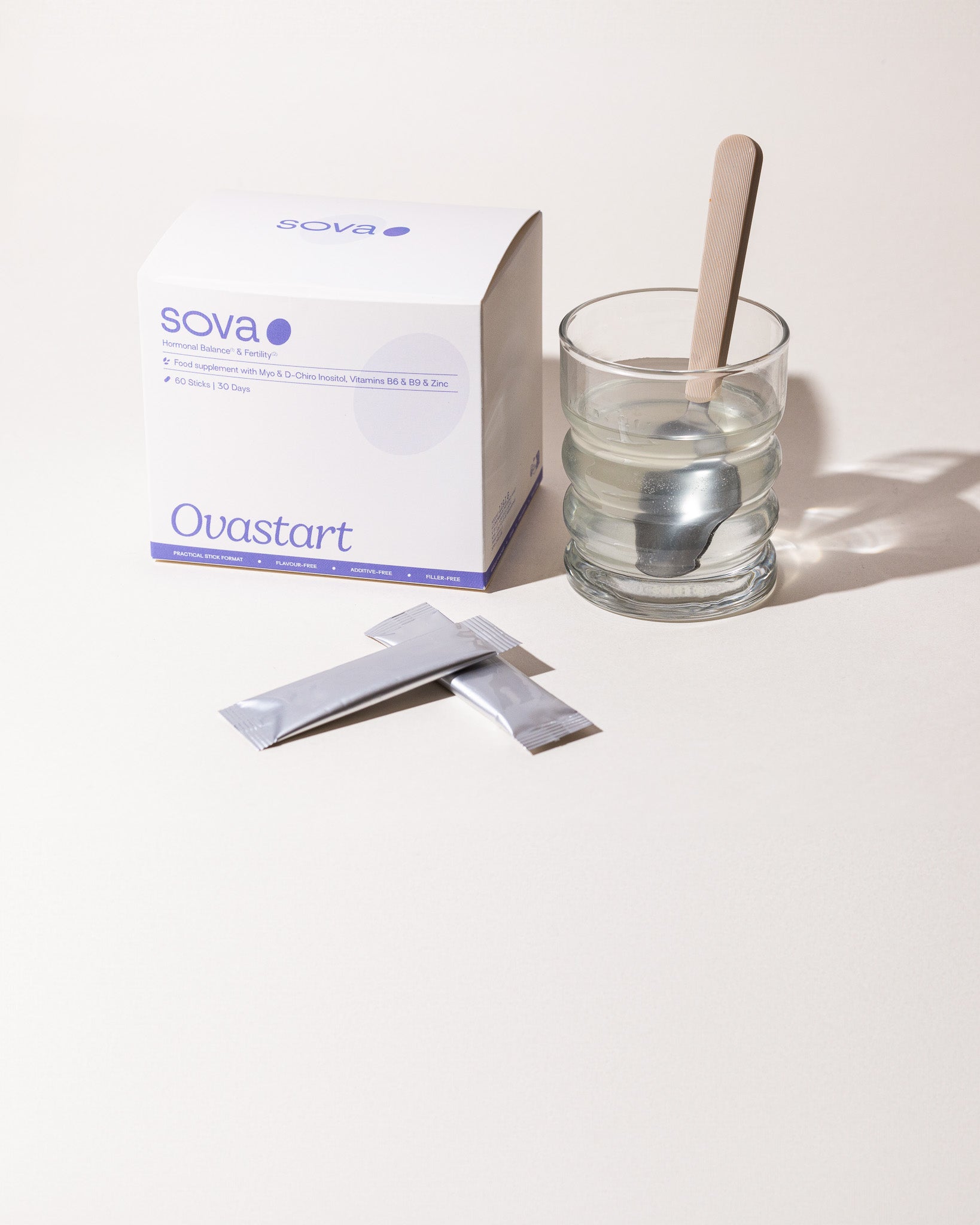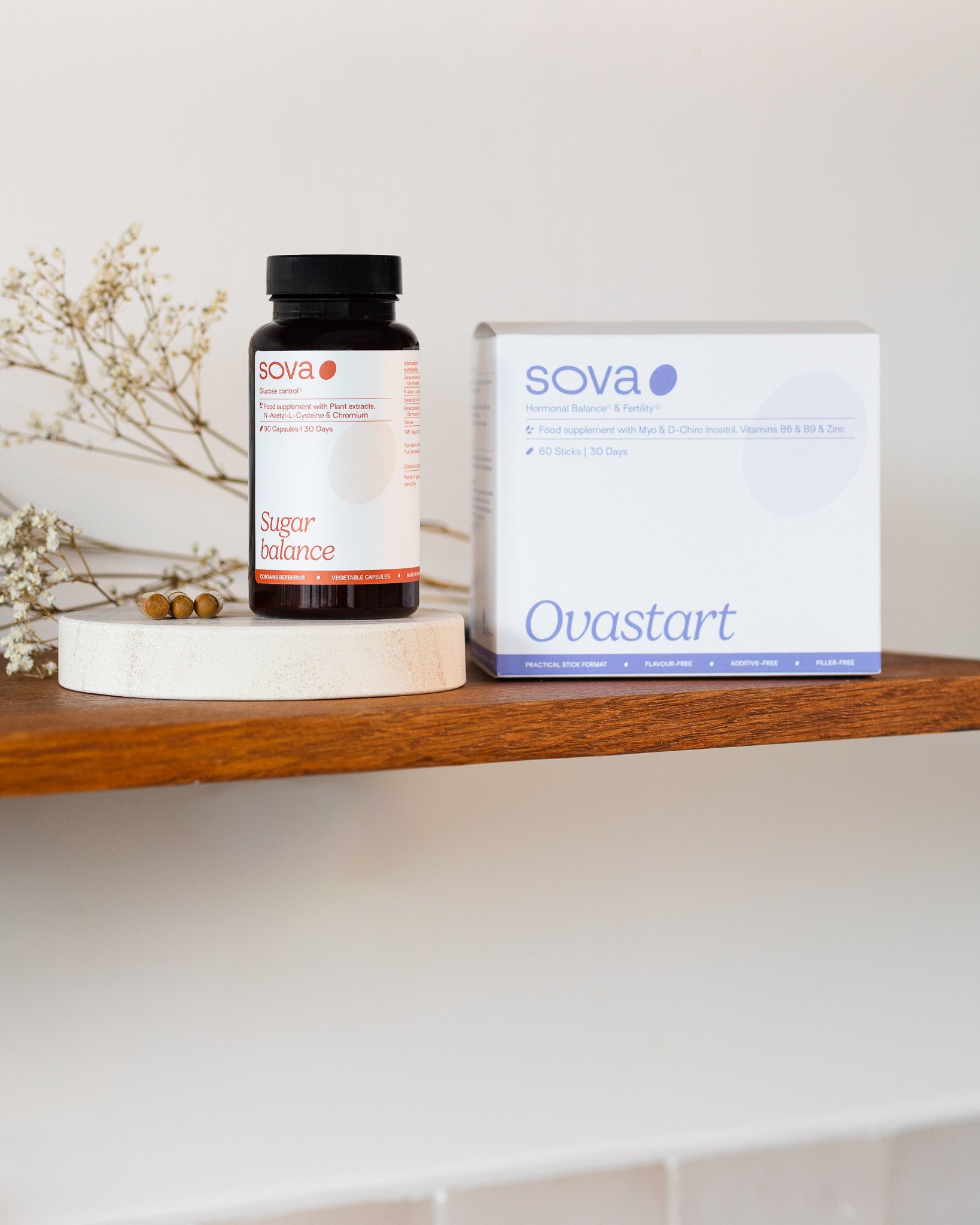Table of contents
Introduction
If you live with PCOS, you’ve probably heard of inositol supplements. They’ve become one of the most talked-about natural options for managing symptoms — from fertility to hormonal acne. But what exactly is inositol? And how do the two main forms — myo-inositol and d-chiro inositol — affect PCOS?
In this guide, we’ll break down the science, explore the proven benefits, and help you understand whether inositol could be part of your PCOS routine.
👉 Not sure which supplement is right for you? Take our free 2-minute product quiz for personalised recommendations.
What is Inositol?
-
Once known as “Vitamin B7,” inositol is a natural compound made in the body from glucose.
-
There are nine forms, but myo-inositol (MI) and d-chiro inositol (DCI) are the most relevant for PCOS.
-
These molecules are vital messengers for insulin and hormones, and they play a key role in:
-
Blood sugar regulation
-
Ovulation and fertility
-
Mood and energy balance
-
Foods rich in inositol include beans, whole grains, nuts, citrus fruits, and legumes. Breast milk is also a natural source for newborns.
👉 Want to understand more about these types of PCOS and how they relate to your symptoms? Check out our article on The 4 Types of PCOS.
Myo-Inositol vs D-Chiro Inositol: What’s the Difference?
-
Myo-Inositol (MI): Supports healthy ovulation, egg quality, and FSH signaling. Especially important for restoring menstrual cycles and fertility.
-
D-Chiro Inositol (DCI): Helps regulate insulin and androgen (male hormone) levels.
-
PCOS Imbalance: Women with PCOS often have too much DCI in the ovaries and not enough MI, leading to poor egg quality, higher androgens, and disrupted cycles.
👉 Clinical studies suggest that a combined MI + DCI ratio is the most effective approach for PCOS management.
Benefits of Inositol for PCOS
1. Improves Insulin Resistance and Blood Sugar
-
Around 70% of women with PCOS have insulin resistance.
-
Inositol improves how cells respond to insulin, stabilising blood sugar and reducing post-meal crashes.
-
Lower insulin = fewer androgens = better cycle regularity.
2. Supports Fertility and Ovulation
-
Myo-inositol is essential for egg maturation.
-
In one study, 88% of women with PCOS regained regular cycles after three months of supplementation, and many conceived naturally.
3. Reduces Androgens, Acne, and Hirsutism
-
By lowering insulin and testosterone, inositol may reduce hormonal acne and excess hair growth.
-
Early studies show promising improvements, especially with combined MI + DCI formulas.
4. Improves Mental Wellbeing
-
Inositol influences neurotransmitters like serotonin and dopamine.
-
It may help reduce anxiety, depression, and PMS-related mood swings.
5. Supports IVF and Assisted Fertility
-
Pre-treatment with inositol improves ovarian response during stimulation, reduces the risk of hyperstimulation, and increases egg quality.
Inositol vs Other Supplements for PCOS
While inositol is one of the most researched PCOS supplements, it works best as part of a holistic plan including:
-
Dietary support (low GI foods, protein-rich meals, anti-inflammatory diet)
-
Micronutrients like folate (Quatrefolic®), zinc, magnesium, and vitamin D
-
Lifestyle changes (exercise, sleep, stress management)
The OVASTART Supplement for PCOS
At SOVA, we created OVASTART, a unique formula with:
-
Myo-Inositol + D-Chiro Inositol
-
Quatrefolic® (active folate)
-
Vitamin B6
-
Zinc
Designed to support hormonal balance, ovulation, skin health, and energy.
Many women also combine it with Sugar Balance for complete blood sugar support.
👉 Ready to find your match? Take our 2-minute product quiz.
Scientific references
SOVA was created by two sisters with PCOS who wanted products that truly worked. Our formulas are developed in-house with women’s health and micronutrition experts, using ingredients backed by clinical studies and compliant with European regulations.
- Built by women with PCOS, we know the reality of the symptoms.
- Clinically studied, high-quality ingredients, including patented forms like Quatrefolic® and an optimal Myo-/D-Chiro Inositol ratio.
- Holistic support for hormonal balance, metabolic health, inflammation, mood and cycle regulation.
- Transparent, science-led formulas with no unnecessary additives.
















